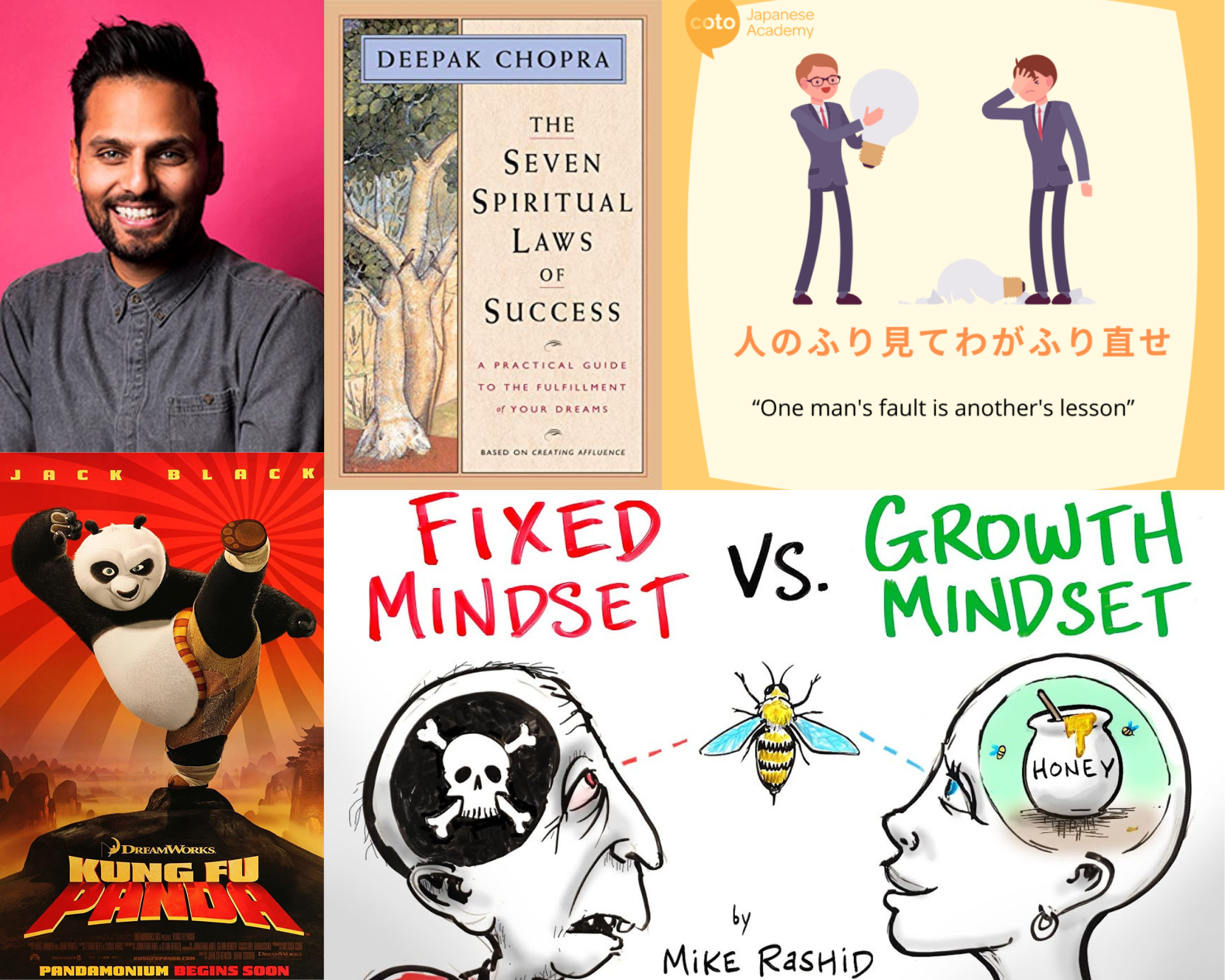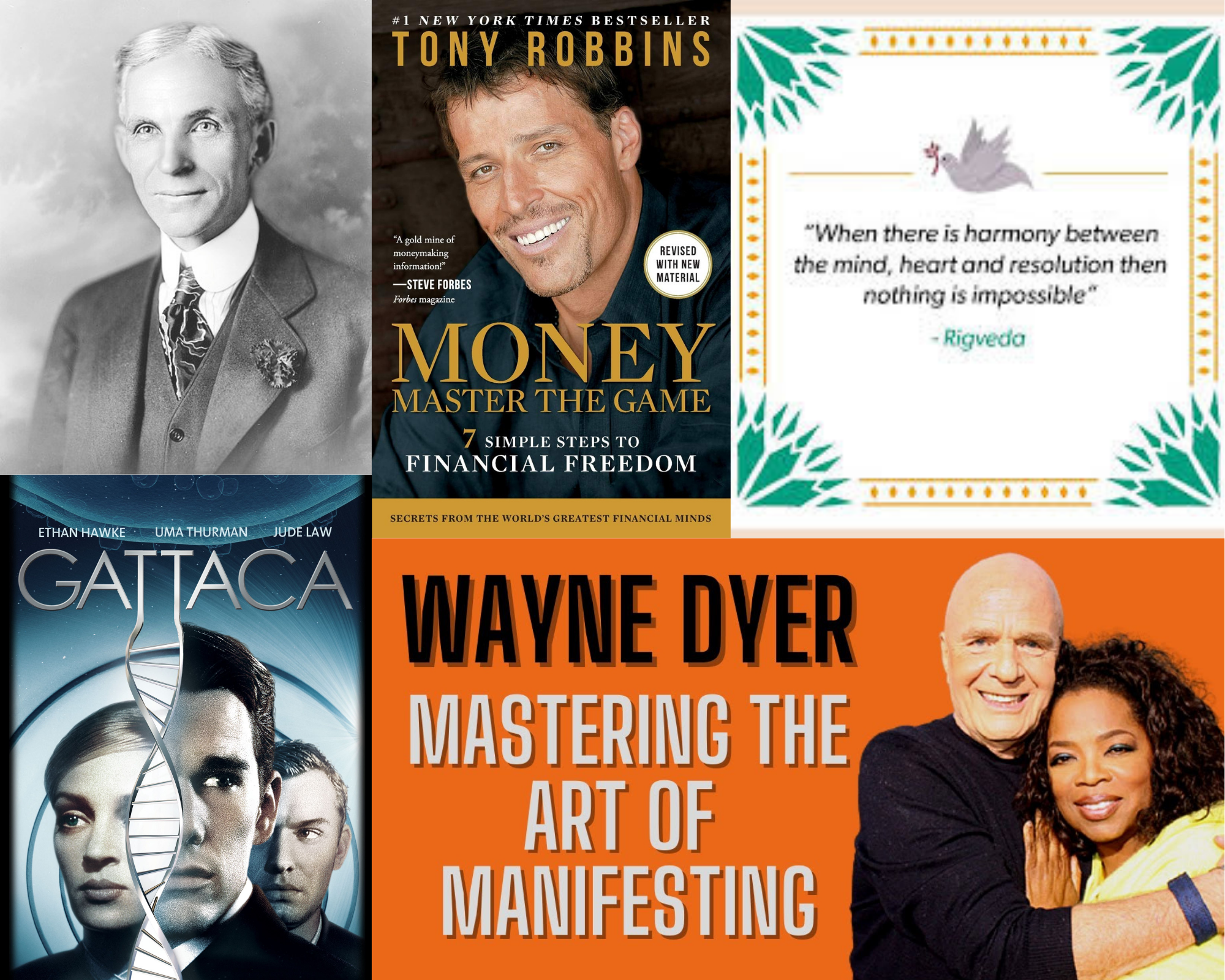Sunday Supplement #101 (April 16th, 2023)
Below is another Sunday Supplement with a quote worth sharing, a book worth reading, a movie worth watching, brainfood worth consuming, and a spiritual passage worth pondering.
Please take something away from these recommendations that enriches your week ahead!
Quote of the Week:
“If you can build a muscle, you can build a mindset.”
– Jay Shetty
Book of the Week:
The Seven Spiritual Laws of Success – Deepak Chopra
Deepak Chopra’s The Seven Spiritual Laws of Success discusses seven simple principles that help cultivate a mindset that brings success.
The principles have some basis in Hinduism, and Chopra breaks down each principle into actionable steps to help change your perspective and invite success.
An example of one of the principles is 6. The Law of Detachment. In this chapter, Chopra discusses the benefits of not trying to change people and force solutions, but seeing how you can adapt to each situation or move on.
Chopra has written numerous New York Times bestsellers and was described by Time magazine as one of the top 100 heroes and icons of the century.
I’ve featured Chopra in two previous Brainfood of the Week sections and believe his work is worth checking out.
Movie of the Week:
The 2008 Dreamworks film Kung Fu Panda tells the story of a clumsy panda surprisingly chosen as the protector of the Valley of Peace in the wake of a villain’s pending attack.
Kung Fu Panda is a simple film with a powerful message of perspective and self-belief. It also packs many laughs and an entertaining story.
The film was also a commercial success and went on to have three sequels, multiple television show spinoffs, video games, and more.
In addition to its huge commercial success, the original Kung Fu Panda was nominated for an Oscar for Best Animated Feature Film of the Year.
I haven’t seen any of the other films or subsequent spinoffs, but I thoroughly enjoyed the original and recommend it as a fun and uplifting watch.
Brainfood of the Week:
Fixed Mindset vs. Growth Mindset – Mike Rashid | After Skool
After Skool is a YouTube channel that animates videos as the backdrop to various life lessons presented by various individuals and texts.
Former professional boxer, entrepreneur in the wellness space, and host of the Civil Mind Savage Body podcast, Mike Rashid, shares his story and perspective for this video.
Rashid breaks down the differences between a fixed mindset and a growth mindset. He shares his life experience and how he embraces a growth mindset.
Lessons from the video include using problems as motivating factors and knowing that intelligence and skill can be improved with effort.
I featured After Skool in Sunday Supplement #16, and I’m glad for the opportunity to return to their channel to share this video.
Closing Spiritual Passage:
“One man’s fault is another’s lesson.” (人のふり見てわがふり直せ)
– Japanese Proverb
This Japanese proves reminds me of the usefulness of thinking about how I interpret things and what I want to gain from them.
Instead of criticizing someone else’s behavior, you can use the situation as an opportunity to correct your own.
Another’s fault can also be a chance to catch yourself before you react and an occasion to support someone else instead of putting them down.
The opportunities for pausing and thinking about how you want to interpret things can be elusive, but seeing someone else’s fault is a chance to reframe your perspective.
Work on your ideal mindset, and have a blessed week ahead!
8 Comments

